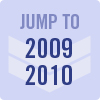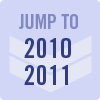Innovative professional development presentations with nationally-recognized experts to help practitioners, districts and families gain insight, understand emerging practices in education and develop new skills.
Enter your email to receive notifications and information on upcoming NASDSE Prefessional Development Series

March 27, 2013 | 1h 36m
Online Learning For Students With Disabilities - What We Know and What We Need To Know
Paula Burdette
Senior Policy Analyst, National Association of State Directors of Special Education
Bill East
National Association of State Directors of Special Education
Diana Greer
Research Assistant Professor, Center for Research on Learning, University of Kansas
Skip Stahl
Senior Policy Analyst, Center for Applied Assistive Technologies
Online learning for all students, including students with disabilities, is being utilized more and more as a way to deliver educational content. A growing number of students are receiving all of their education in an online environment, or part of their education in some type of blended arrangement. Educators and families have many questions that need answers about the appropriateness of these environments for students. Many stakeholders fear that the growth of online learning has outpaced the research and training needed to ensure quality. Others comment that the design of some current programs is not appropriate or engaging for all students. We know a lot about online learning, but there is still so much we need to know. The U.S. Department of Education, Office of Special Education Programs funded the Center for Online Learning and Students with Disabilities to do research, design and dissemination work to help us be on the cutting edge for delivery of online learning. The management team from the Center will present information about what has been learned during the first year of the Center’s work and the challenges that remain in this constantly changing field.

March 27, 2013 | 1h 37m
Educating Students With Hearing and Vision Challenges - Innovations For Success
Lou Abbate, Ph.D
President and CEO of the Willie Ross School for the Deaf
Ann Barber, M.Ed
Assistant Regional Director, Perkins School for the Blind Educational Partnerships
Bill East
National Association of State Directors of Special Education
Laurie Bell Farkas
Director of Student Services, Northampton Public Schools
Gordon Smith, M.Ed
Superintendent, East Longmeadow Public Schools
Students with hearing and vision impairments can and do learn commensurate with their peers, but they may need special technologies, innovative teaching strategies and meaningful partnerships among educators and others to ensure their success. Since these students receive services in public schools, special schools, online and other environments, coordination and partnerships are keys to providing high quality educational content and social-emotional support. All students must be prepared for successful transitions consistent with their post-school goals. In this conference, presenters representing public and special schools will discuss how the collaboration, use of innovative strategies and special technologies have enhanced the learning of students with hearing and vision challenges.

November 1, 2012 | 1h 46m
Autism Today - Evidence-Based Practices and Tools for Implementing Successful Programs
Bill East
National Association of State Directors of Special Education
Brenda Myles
Consultant, Ohio Center for Autism and Low Incidence and the Ziggurat Group
Lee Stickle
Director of the TASN Autism and Tertiary Behavior Supports Project
As the number of students diagnosed with Autism has risen, policymakers, educators, researchers and parents have continued to search for the appropriate mix of policy, proven practices and helpful tools to assist these students with their learning. As research provides more answers, stakeholders are learning more about what works. Since the knowledge base continues to evolve over time, it is important to stay updated about the progress that is being made to support students, their families, educators and related services providers and other stakeholders working with them. In this conference, presenters will summarize the field of Autism today and describe some of the successful evidence-based practices and tools being used.

November 28, 2012 | 1h 20m
Improving Social Emotional Health In Schools: Evidence-Based Intervention Strategies For Young Children
Bill East
National Association of State Directors of Special Education
Phil Strain
Professor of Educational Psychology, University of Colorado-Denver
When thinking about the social emotional health of young people, we most often think of problems in our elementary, middle or high schools. Problems are well documented and programs have been developed to ensure safe and healthy school environments and to assist children and youth with special social emotional or behavioral needs. However, more and more attention is being focused on children who come into our schools at very young ages who already have needs that require the attention of teachers and administrators. In this conference, we will focus on the work of the Technical Assistance Center for Social Emotional Intervention (TACSEI). The presenter will discuss evidence-based practices that can ensure a good learning environment for all young children, with a focus on those with social emotional issues.

March 30, 2012 | 1h 29m
It's 2012: Do You Know Where Your RTI Is?
George Batsche
Director, Institute for School Reform, University of South Florida
Bill East
National Association of State Directors of Special Education
W. David Tilly
Director, Heartland Area 11
NASDSE has been promoting Response to Intervention (RTI) since 2003. Since then, other labels came to be used for this initiative, such as Response to Instruction (RTI), Multi-Tiered System of Supports (MTSS) and Multi-Tiered System of Student Supports (MTSSS) among others. NASDSE's work has included other professional development conferences and publications. Our most notable publication is a book first published in 2006, "Response to Intervention: Policy Considerations and Implementation," with more than 86,000 copies in print. The past was good, but what is happening now? The implementation of RtI, as originally considered, has changed in response to the analysis of implementation data, the changing landscape of public education, its implementation at the pre-K and secondary levels and the integration of both academic and behavior applications (e.g., positive behavior instructional supports (PBIS) and RtI) into single delivery systems. In this conference, two well-known leaders in the RTI movement will talk about the current status of RTI in states and schools, lessons learned from years of implementation, exemplary programs and practices, what the data are telling us and what to expect from this initiative in the future.

March 30, 2012 | 1h 47m
Providing Education Assessments Appropriate for Every Student: Is It Possible?
Bill East
National Association of State Directors of Special Education
Neil Kingston
Director, Dynamic Learning Maps, University of Kansas
Rachel Quenemoen
NCSC Director, University of Minnesota
Martha Thurlow
NCEO Director, University of Minnesota
During a conference in NASDSE's professional development series last year, representatives from the Council of Chief State School Officers and the National Governors' Association discussed the Common Core State Standards initiative. They indicated that assessments aligned with these standards were being developed for both general and special student populations. Actually, there are four assessment consortiums - two focusing on general education and two addressing students with the most significant cognitive disabilities. The general education consortia are the Partnership for Assessment of Readiness for College and Careers and the Smarter Balance Assessment Consortium. The two consortia addressing special needs are the Dynamic Learning Maps Alternate Assessment System and the National Center and State Collaborative. During this conference, representatives from these consortia will talk about the development of the assessments, progress to date and what to expect in the future.

October 26, 2011 | 1h 56m
Section 504 Issues for Students With Disabilities: Case Law and Implications for Practice
Perry Zirkel
Professor of Education and Law, Lehigh University
Special education students are general education students first. Educators are often reminded of this truth when discussions are about standards, curriculum, assessment and accountability issues. But when the conversations turn to law and dispute resolution matters, people quickly focus on the Individuals with Disabilities Education Act (IDEA) statutory requirements and regulations, especially those issued by the U.S. Department of Education. However, another important law, Section 504 of the Rehabilitation Act applies to all students, not just students receiving services under IDEA. In this conference Dr. Zirkel will address current Section 504 case law where special education students were involved and talk about the implications for practice. In addition to staff and local school personnel, states should consider making this conference available to their legal counsel, hearing officers and attorneys who represent schools/districts.

October 26, 2011 | 1h 54m
We're Better Working Together: Recommendations for Improved Coordination Between Title I and the IDEA
Bill East
National Association of State Directors of Special Education
Richard Long
Executive Director, National Title I Association
Judi Miller
Assistant Director, Title Programs and Services, Kansas Department of Education
Collen Riley
Director, Kansas Special Education Service Team, Kansas State Department of Education
Title I of the Elementary and Secondary Education Act (ESEA) and the Individuals with Disabilities Education Act (IDEA) largest U.S. Department of Education investments that support K-12 education in our country. The U.S. Department of Education has promulgated numerous regulations and written many guidance documents that help guide implementation of these laws. In addition, states have their own rules. All these laws, regulations and guidance documents are intended to ensure appropriate services for students who are eligible for Title I and/or special education services. It is conservatively estimated that, of the more than 14 million students served by Title I and the 7 million served by the IDEA, approximately 2.5-3 million are served by both programs. Often there is confusion at the district and school levels because of inconsistent definitions for the same terms, data collections are done at different times, and there is a general lack of understanding about how these programs should work together. In this conference, leaders from the Kansas State Department of Education and two national organizations will discuss some of the issues that impede better coordination between the two laws and recommend actions that could occur at the national, state and local levels to help the programs work better together.

March 23rd, 2011 | 1h 56m
Common Core Standards: What They Mean for States and Schools
Bill East
National Association of State Directors of Special Education
Dane Linn
Director, Education Division, National Governors Association
Gene Wilhoit
Executive Director, Council of Chief State School Officers
The National Governors Association (NGA) and the Council of Chief State School Officers (CCSSO) have led an effort to develop national voluntary common core standards for K-12 in English/Language Arts and Math. The standards were released in June, 2010, and more than half of the states have already agreed to adopt them. In this conference, representatives from the NGA and CCSSO will discuss the standards, the adoption process, how states will use them and specifically address what the common core standards mean for special education.

January 12th, 2011 | 1h 49m
Special Education Teacher Evaluation: Issues and Answers
Tony Bagshaw
Managing Director of Human Capital, Battelle for Kids
Bill East
National Association of State Directors of Special Education
Lynn Holdheide
Special Education Research Associate, National Center for Teacher Quality
The evaluation of teachers, including special education teachers, has become increasingly important as teachers are held accountable for student performance. At the same time, many special education teachers are assuming new roles such as co-teaching, coaching and supporting general education teachers and related service personnel. This conference will address the issues of special education teacher evaluation, including time attribution and measures such as student performance. Data from a National Center for Teacher Quality study will be presented to give examples of practices across the nation

December 8th, 2010 | 1h 57m
Using Technology to Support Teaching and Learning
Joanne Cashman
Director, IDEA Partnership, National Association of State Directors of Special Education
Bill East
National Association of State Directors of Special Education
Dr. Phoebe Gillespie
Director, Personnel Improvement Center, National Association of State Directors of Special Education
Steve Luke
Director, National Dissemination Center for Children with Disabilities, Academy for Educational Development
Educators are increasingly turning to technology for information and resources to help provide educational and support services for all students. While much of the information and resources available are appropriate for all students, special educators in particular are looking for evidenced-based programs and supports to assist them in teaching the diverse population of students that require their help. This conference will feature selected resources that are readily available free of charge. It will also demonstrate how virtual mentoring can be used to support teachers.

May 4th, 2011 | 1h 23m
Virtual Special Education: Issues and Answers
Bill East
National Association of State Directors of Special Education
Bryan Setser
Executive Director, North Carolina Virtual Public School, North Carolina Department of Public Instruction
Mary Watson
Director, Exceptional Children Division, North Carolina Department of Public Instruction
Technology is having a tremendous impact on special education in many ways. One trend that is developing quickly is teaching special education via virtual delivery systems. While virtual special education has been successful, there are many issues that must be addressed. This conference will feature the successful North Carolina Virtual Public School. Compliance and accountability issues including the implementation of the special education process in the virtual environment will be discussed.

March 19th, 2010 | 1h 42m
Connecting Educational Standards to Student Learning Plans
Bill East
National Association of State Directors of Special Education
Marla Davis Holbrook
Alabama Department of Education
Charlotte Kerr
Homewood City Schools, Homewood, Alabama
As schools become increasingly accountable for the academic achievement of students with disabilities, instruction based on academic content standards has become a best practice in American classrooms. One method for planning the student's instructional program is through the development and implementation of standards-based IEPs. This conference will walk through the steps involved in developing standards-based IEPs and discuss both successes these kinds of IEPs generate and the barriers to their development and implementation from both state and local perspectives.

December 4th, 2009 | 1h 34m
Healthy, Physically Fit and Ready for Action: Addressing the Physical Education and Activity Needs for Individuals with Disabilities
Dr. Robert Arnhold
Slippery Rock University
Bill East
National Association of State Directors of Special Education
Dr. Garth Tymeson
University of Wisconsin-La Crosse
Linda Webbert
Baltimore County Public Schools
Students with disabilities are expected to achieve in their classrooms at the same high academic levels as their nondisabled peers. Yet, often times, health and fitness barriers such as obesity, low energy, plus low self-esteem and social integration issues get in the way of their ability to achieve. This conference will address these concerns and show how good programs in (adapted) physical education and activity led by highly qualified teachers can make a real difference, not only with the individuals' health, physical well-being and life-long fitness, but also in academics.














